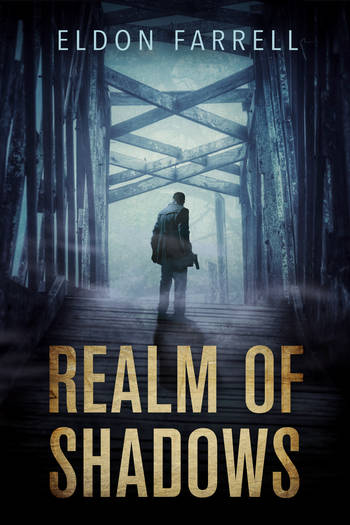We have your wife.
Arriving home, Roger Whittaker is greeted by a blinking light on his answering machine and a message beyond belief. Listening to it, his mind is reeling as he struggles to comprehend what he’s hearing.
This can’t be real.
Dropping his luggage by the phone he races up the stairs. “Miriam!” he calls out for his wife. “Miriam! Where are you?”
We have your wife…
The words repeat in his head as he frantically searches every room upstairs. Reaching the master bedroom he finds it just like all the other rooms—nothing out of place.
Everything is as it should be and yet…we have your wife.
His heart trip-hammering in his chest he rushes back downstairs. As he passes by the answering machine he pauses just briefly—his eyes on it full of suspicion—before hurrying into the kitchen.
There everything is not right.
Several cabinet doors hang open on their hinges while the utensil drawer is upside down on the floor, spilling the silverware across the tile.
Signs of a struggle? Is this where it happened? Were you surprised in our own kitchen Miriam?
An overwhelming sense of anger and violation grows in him as he surveys the wreckage of their kitchen. Stepping around the island in the center of the floor a voice in his head screams at him to stop.
There could be evidence in here, I can’t contaminate the scene.
Carefully backing out of the kitchen he returns to the living room and the root of his anxiety. The answering machine sits mutely on the end table, its light no longer flashing.
Falling onto the sofa beside it he sucks in several deep breaths trying to calm his nerves. Just past his sixtieth birthday, he’s suddenly feeling every bit of his age.
Closing his brown eyes he runs his palm over his head trying to think of a way out of things. His closely cropped hair—more gray than black these days—rustles under his fingers.
Loosening the tie around his neck, he commands his thoughts to coalesce and deal with the situation rationally. I talked to her last night, she was here last night. But was she okay?
Did I miss something? Did she say anything to indicate that she wasn’t okay?
I don’t…I don’t think so.
Opening his eyes he leans his head back against the sofa cushions exhaling heavily. He’s not used to situations that he can’t get some type of control over.
As the head of the Epidemic Intelligence Service at the CDC, he is used to being in control of situations that are beyond control. He’s used to commanding others to act in times of crisis.
And yet now, when the crisis is his, he feels frozen, helpless, and unable to act.
Pressing the play button on the answering machine he listens to the message again. This can’t be happening. Where are you Miriam? Why would anyone…
As the message ends, he’s overcome by a sick, sinking feeling. It can’t be…it’s not possible.
Staring at the machine he wants nothing more than to grab it and smash it into a thousand pieces in lieu of getting his hands on those responsible. But reason stays his hand.
Slowly, and with a slight shake, he picks up the phone and is poised to dial the police when he stops. Can I really do this?
Setting the receiver back on its cradle he stares intently at the answering machine as if the answers he seeks will be found there.
For Miriam. I have to do this for her. I have to chance it.
Marshaling his courage he lifts the receiver again and this time dials the number for the police. The call is answered on the second ring.
“Atlanta P.D.,”
Taking a deep breath Roger says, “I need to report a missing person. My wife…” Choking up he mumbles “My wife has been taken.”
“How do you know that sir?”
“Our home has been broken into,” he answers “There’s signs of a struggle and she’s not here.”
“Please hold sir and I’ll transfer you to a detective.”
As he’s waiting on hold he remains focused on the answering machine. Please forgive me for this Miriam.
With the press of a button he erases the message.
Outside the Whittaker residence, life goes on uninterrupted. Neighbors greet each other with a nod and light chatter; children run and scream excitedly as they play, the smell of cut grass follows the sound of a lawn mower running down the block.
Life in this cozy suburb is tranquil; its inhabitants completely unaware of the turmoil that exists behind a closed door.
People here are friendly without being intrusive. Only one person even realizes that Roger is home—and he’s no neighbor.
Across the street, two doors down, under the shade of an Eastern Juniper he’s silently watching the house.
His cover is perfect, crouched at the mouth of a narrow alleyway between two colonial style homes; he’s protected from sight on both sides by shrubbery and high fences. He’s able to monitor the comings and goings at the house without being seen by anyone inside it as the tree is in their direct line of sight.
From this vantage point he watched Roger pull into his driveway and enter his home and from this vantage point he’ll know when he leaves.
For the next four days he’ll be Roger’s shadow—ever present and always watching. Until it is over and Roger Whittaker has done what is required of him, privacy will be denied him.
There’s just too much at stake now.
Flipping open a disposable mobile phone he dials a number from memory. When it is answered he says, “He’s in play, we’re a go.” before hanging up.
Returning the phone to his pocket he resumes watching—ever patiently waiting.



